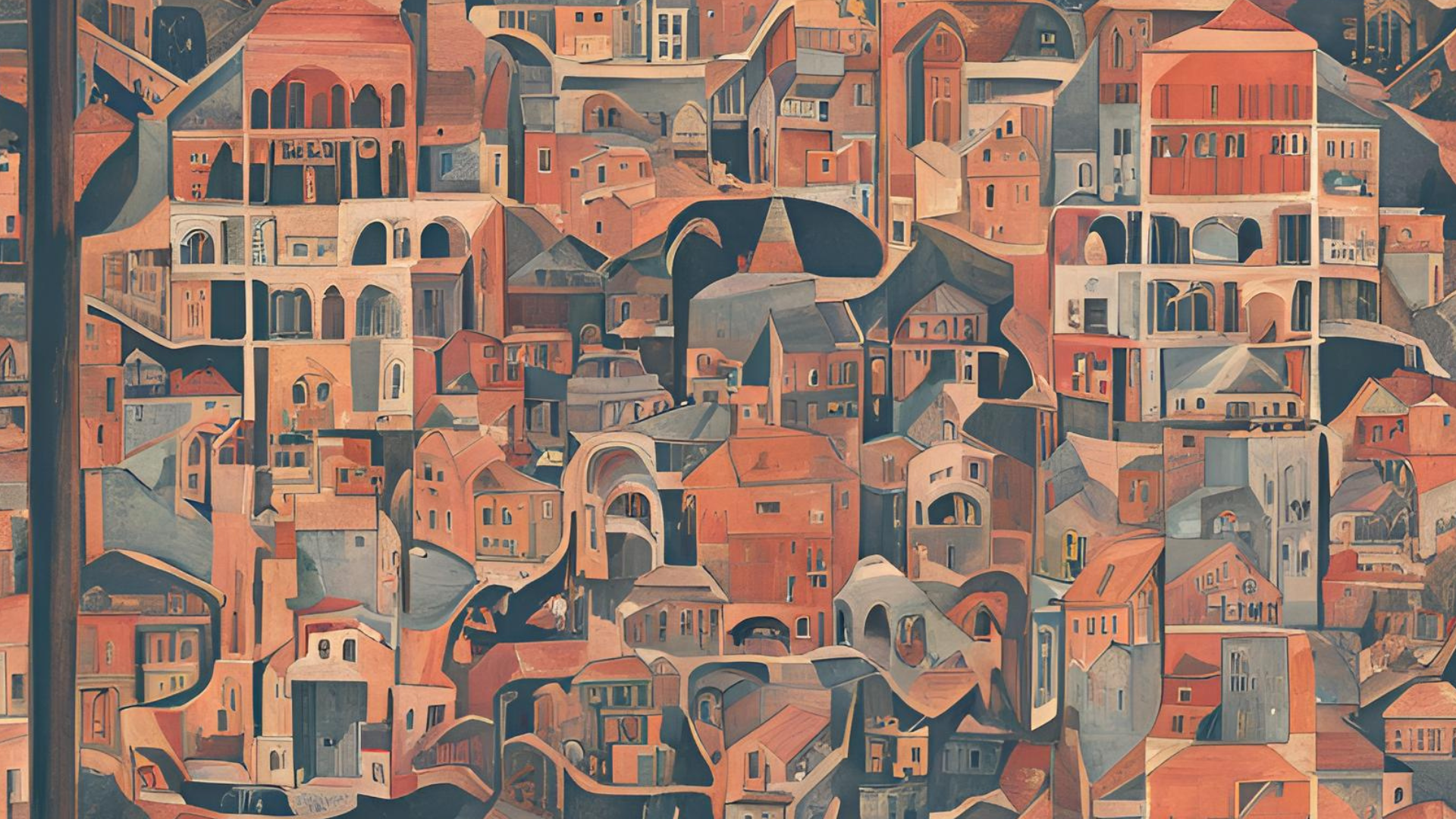
Paradise
Author: Munir Momin
Translated by: Fazal Baloch
The very first ray of sunlight found its way between Mezar’s and Didar’s necks. They shivered and began scanning their surroundings thoroughly. They both thought they had spent the whole of last night like this.
Mezar and Didar had slipped away from their village the afternoon be- fore. Along the way, darkness had fallen upon them, so they decided to spend the night on this mound. It was a wide plain with a few scattered mud mounds and nothing else. Mezar thought that paradise might be like this. Then she tucked her head under her wing.
It is an old mud compound. The fort it once enclosed is now levelled to the ground, but its remains still linger there in the shape of mud mounds here and there. It appears that it was once the fort of the rulers of this region. But over the course of time, its tenants kept changing. Now it belongs to Bassham the goldsmith.
A rich man, Bassham has built a beautiful new house inside the com- pound, and there are only a few last remnants of the fort. So far he has not touched the old mud wall. It is still strong and sturdy. On its eastern side there are large black-plum trees. It is hard to estimate their age. They are really old trees. Nobody knows if the compound was built first, or if the trees were planted before. Right to the southeast of Bassham’s house lies Sabzal the mason’s house. Although it is not small either, it is not even a quarter of the size of Bassham’s house.
Sabzal’s house has four rooms with mud walls and a large concrete dovecote with roosters, hens, pigeons, laughing doves , parrots, grey francolins and many other kinds of small birds. Sabzal’s eldest son, Ramazan is an avid bird lover who busies himself with his birds all day long.
Chippan has built her nest on the plum tree to the right. She has two squabs, Shepalok and Mezar. Chippan is a pigeon who made this plum tree her abode long ago. She has lived here since her childhood, and after she met Shepalok’s and Mezar’s father, they lived here together.
Then one day a few months ago, her squabs’ father flew off and never returned. God knows what befell him. Now that such a long time has passed, the mother and children are certain that he is no longer alive.
Among the birds kept at Sabzal’s house there are also many pigeons. Every day his son lets them out and then, at the right time, he catches them again and puts them back in the dovecote. But one pigeon, known as Didar, always darts out of the dovecote and perches on the wall, looking for an opportunity to fly to the plum tree. Didar thinks that it is the world’s leafiest tree with the most pleasant shade. He takes a strange delight in perching on its branches, a feeling he has never experienced before.
Every day Ramazan wanders about searching for him. He shuts in all the birds, but there is no sign of Didar. Didar thinks the dovecote is like a hellish prison. He wishes he had never set eyes on it or its owner. Ramazan, on the other hand, curses him, thinking: “This Didar gives me trouble all the time. This damned rascal is always missing. All the birds are here; only he is out of sight. He keeps wasting my time.” After looking for him for a long time, Ramazan sees him courting Mezar in the plum tree. Ramazan yells at him, but the bird is unaware of his sur- roundings. Ramazan calls out: “Didar!” but Didar pays no attention, being indifferent to everything but Mezar. Ramazan grumbles: “So this is what you’ve been doing all this time. Once I get my hands on you, I’ll teach you such a lesson that you’ll never want to fly to the plum tree again and give me trouble.”
All of a sudden Mezar senses Ramazan’s presence and tells Didar: “Over there! Ramazan is looking for you.” When Didar sees Ramazan he says to himself: “If only I could escape into Mezar’s eyes.” At that very moment Mezar closes her eyes and says: “Didar! This man is not going to let you sit here. Why don’t you make me into a ring and wear me on your leg?”
Right then, Ramazan climbs the tree, catches Didar and takes him to the dovecote.
Early in the morning Mezar alights on the wall. Time passes. It’s mid- day and Mezar is still lonesome and lovesick. She feels that it is hotter than usual. She looks around. The wind is blowing, but she wonders why she hasn’t felt it. Looking for a gust of wind, her eyes fall on the dovecote. She thinks to herself that if the door of the dovecote were opened right then, a breeze would arise and the weather would change into its finest new clothing. But the dovecote is not opened until dusk, and Mezar’s mother calls her back to the plum tree. For the next four days, the air feels hot as an oven to Mezar. On the fifth day, Ramazan opens the dovecote and lets the birds out in the hope that Didar has been punished enough for flying to the plum tree, that he has learnt his lesson and won’t even look in that direction ever again.
After these four days of soul-scorching waiting, today Mezar and Didar finally have their change of season. A pleasant breeze is showering them with ocean mist like musk. The pair think that if they are to make this heavenly moment eternal, they must leave this village, slipping away before dusk, before Ramazan comes.
The sun is high in the sky. There is nothing but light between heaven and earth. Mezar and Didar are soaring like two dots high in the sky. They have their eyes fixed on the earth, looking for a place where they can keep their paradise.
Published: Momin, Munir (2016), Lailan.
Courtesy: Unheard Voices


